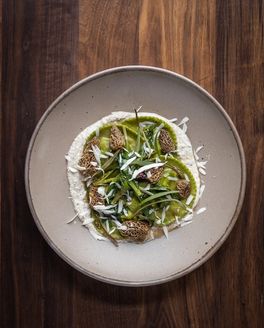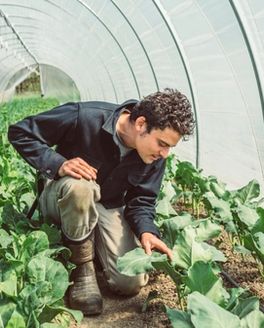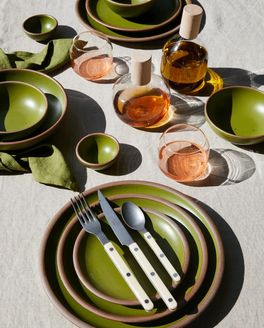
At The Table With Anne Quatrano
photos by Erik Meadows
Anne Quatrano is having one hell of a day.
Starting at 8am, the James Beard Award-winning chef and seasoned restaurateur has left her farm near Cartersville, Georgia to drive to Atlanta for a dentist visit, a mammogram, and a bone density test, and now, she’s figuring out how to fit and haul home 1600 pounds’ worth of rubber horse stall mats that have been inadvertently delivered to one of her restaurants while dealing with a sudden key staff issue at another restaurant. Not to mention the constant stream of calls, texts, questions, crises, product deliveries, and figuring out what happened to a missing set of glassware.
For a typical person, that’s…a lot. But for Anne, it’s simply the ebb and flow.
There’s no such thing as balance, she explains. ”You know, the dentist said to me, ‘It must be really hard to get away.’ But it’s actually harder for me to get away from the farm than it is for me to get away from the restaurant,” she says. “We have twenty horses and 300 chickens and they don't eat if we're not there. They depend on us.”

It’s a late spring day and I’m here to meet with “Annie” as she asks me to call her, at her restaurant, Bacchanalia. Because Bacchanalia plates on East Fork dishes and because Annie loves green, I’ve brought boxes of fresh pottery in our newest glaze, Fiddlehead, so we can hang out and make some food together with her culinary team. She is dressed in a green sweater and light pink skirt over white pants and sneakers, her red hair loose for the moment, but she’ll soon instinctively pull it back into a ponytail as we start to work with food. Her Cutler & Gross black rimmed glasses are part of her signature look. “I probably have seventy pairs of glasses,” she says. “This is my frame of choice. In this frame style I have eight nice pairs in all different colors. And this is what I prefer to wear.”
As a fellow near-sighted person, I’m jealous. I ask her if she has a dedicated eyewear closet. “They're in glass boxes and they have glass tops,” she explains. “But we collected a lot of dogs recently. We have a lot of dogs that are under a year old: three of them. And they just destroy everything. Everything.”
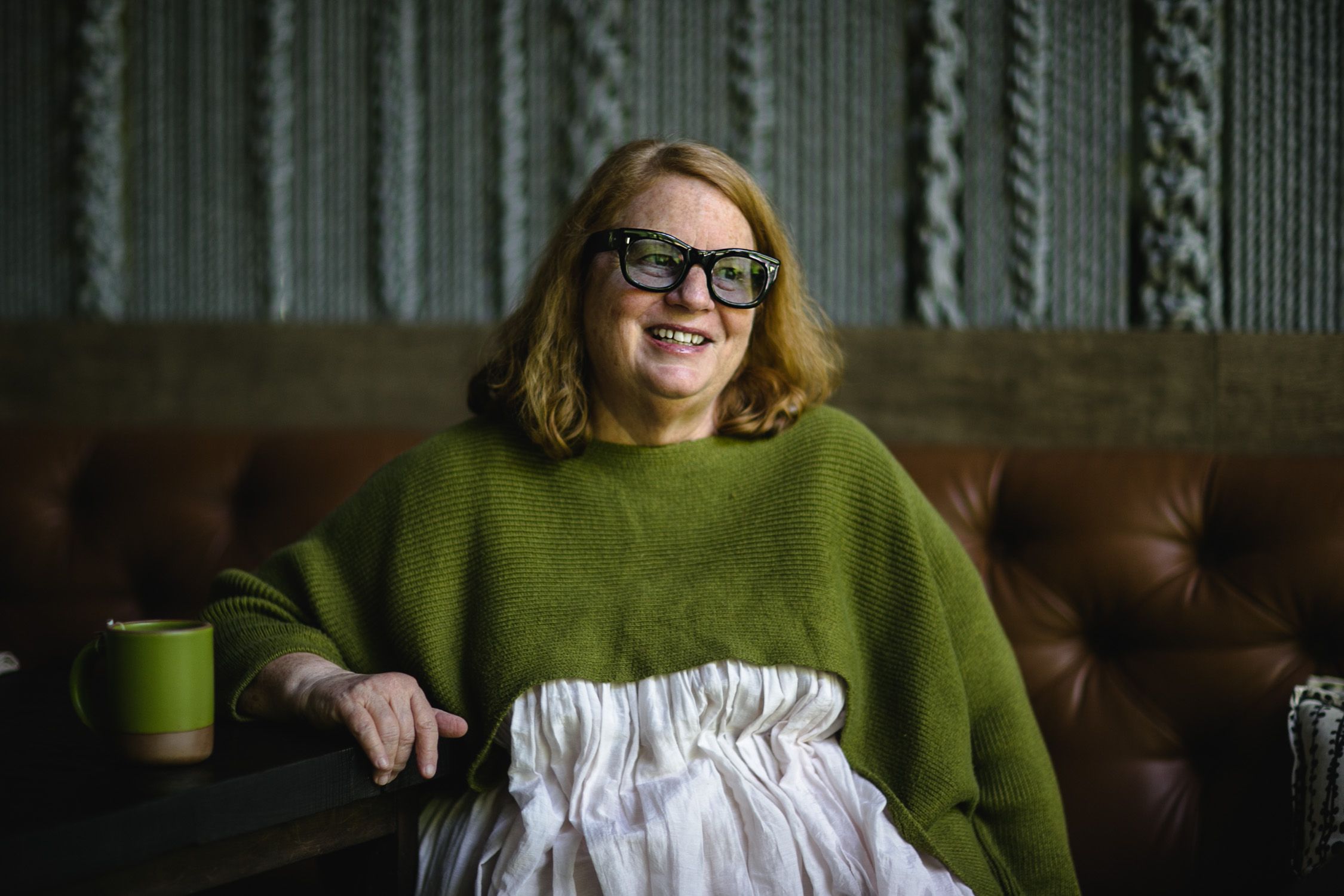
She hands a bag of fresh green strawberries from her farm to David, Bacchanalia’s executive chef. Annie’s mention of her new dogs doesn’t surprise me, because when Anne Quatrano does something, such as bring new animals on the farm or open a dining concept or pivot in the face of a pandemic, she goes all in.
Like an art curator or studio producer, you may not have heard of Anne Quatrano outside the hospitality industry. But she’s considered serious restaurant royalty.
Widely respected with a stunning career, the 63 year-old restaurateur has been called the “queen of Atlanta fine dining,” and like Alice Waters (one of her influences), Annie has fulfilled her mission of getting Southern diners to care about where the food on their plates comes from and understand the real story from plow to fork. She began her career at the California Culinary Academy in San Francisco in the 1980s, where she met her husband and business partner, Clifford Harrison. Together, they shared a love of and commitment to fresh, simple ingredients and techniques that could showcase the quality of the food itself. Their culinary careers brought them to New York City, and then in 1992, Annie moved back to her family’s farm, Summerland, outside Cartersville, becoming the fifth generation to work the land. They opened Bacchanalia in 1993.
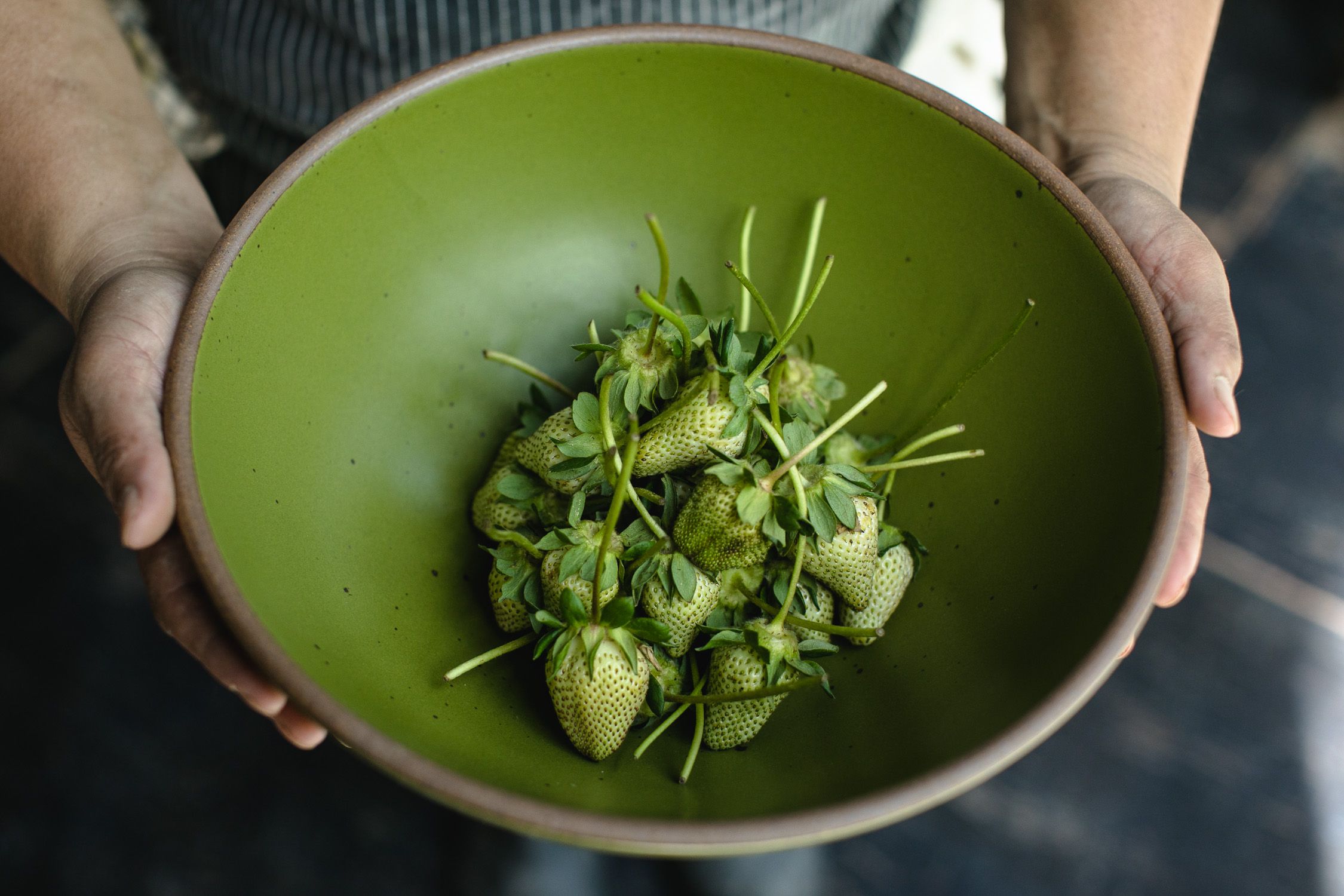
In the words of Frank Sinatra, Annie can say she has done it “her way” most of her life. She doesn’t bring on investors for her restaurants, and her restaurants vary in theme but are all centered on one shared principle: the best and freshest ingredients possible. Some concepts have come and gone over the years, but several have become Atlanta’s mainstays: Bacchanalia, Star Provisions, Floataway Cafe, and W.H. Stiles Fish Camp in Ponce City Market. Summerland provides a lot of products for the restaurants, supplemented by other area farms and producers.
We sit in Bacchanalia’s main dining room, which is quiet and peaceful. We have hours before dinner service begins. On the other side of the building, Star Provisions Market & Cafe is bustling through the end of lunch.
While women-identifying chefs are getting their due, it’s still rare to meet a hospitality group owner who is a woman, since hospitality group ownership has been a man’s world for a long, long time.“I think a lot of women need encouragement,” Annie says. She has supported women throughout her career and continues to do so as much as possible through her nonprofit involvement, serving on the James Beard Foundation board. She has served on the board of directors for Women Chefs and Restaurateurs, Georgia Organics, and has been involved with Let’s Talk Womxn and Southern Foodways Alliance. “My experience wasn't terrible as a woman in this industry. Don't know why,” she says thoughtfully, both of us silently acknowledging a long history of misogyny and harassment. “I worked at Union Square Cafe in New York for a while. It was a total boys’ camp. But the work was so lame. You would make one dish 80 times. And now there's a lot of ways [for women] to make money in our industry without being in a restaurant or the restaurant world, which is fantastic. Even lunches can be profitable. One of my favorite restaurants in L.A., Destroyer, is only open until 4pm.”
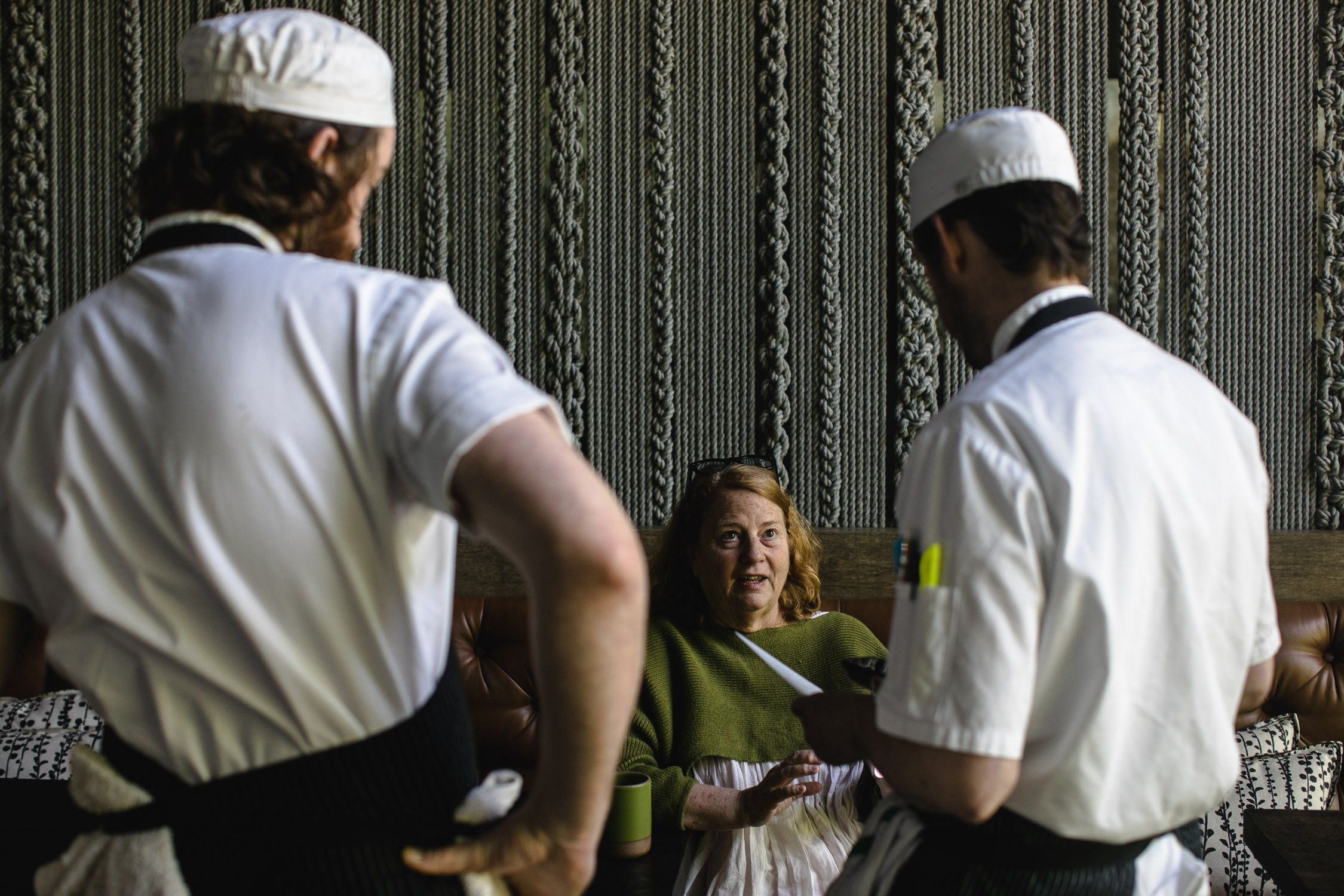
James, Bacchanalia’s sous chef, approaches to discuss the details of a dish they’re building that will feature wild turbot. “Do you want me to poach it, or saute?” James asks.
“You can saute, but let's do a pave, let's make it square,” Annie says.
“Yes, chef,” he replies and walks back to the kitchen.
When it comes to plating, Annie works with the particular dedication of an artist, always with a specific vision in mind. What could appear as micromanagement to some industries is true leadership to her team, who understand that working with her requires excellence of themselves and also humanness and willingness to be humble with all of their creative risks, wins and failures.
“We have people that have been with us for 25, 30 years,” she says. “Our core staff at Fish Camp has stayed the same throughout. Our hardest moment is right now at Floataway. We had the same chef there for 25 years and he just left.”
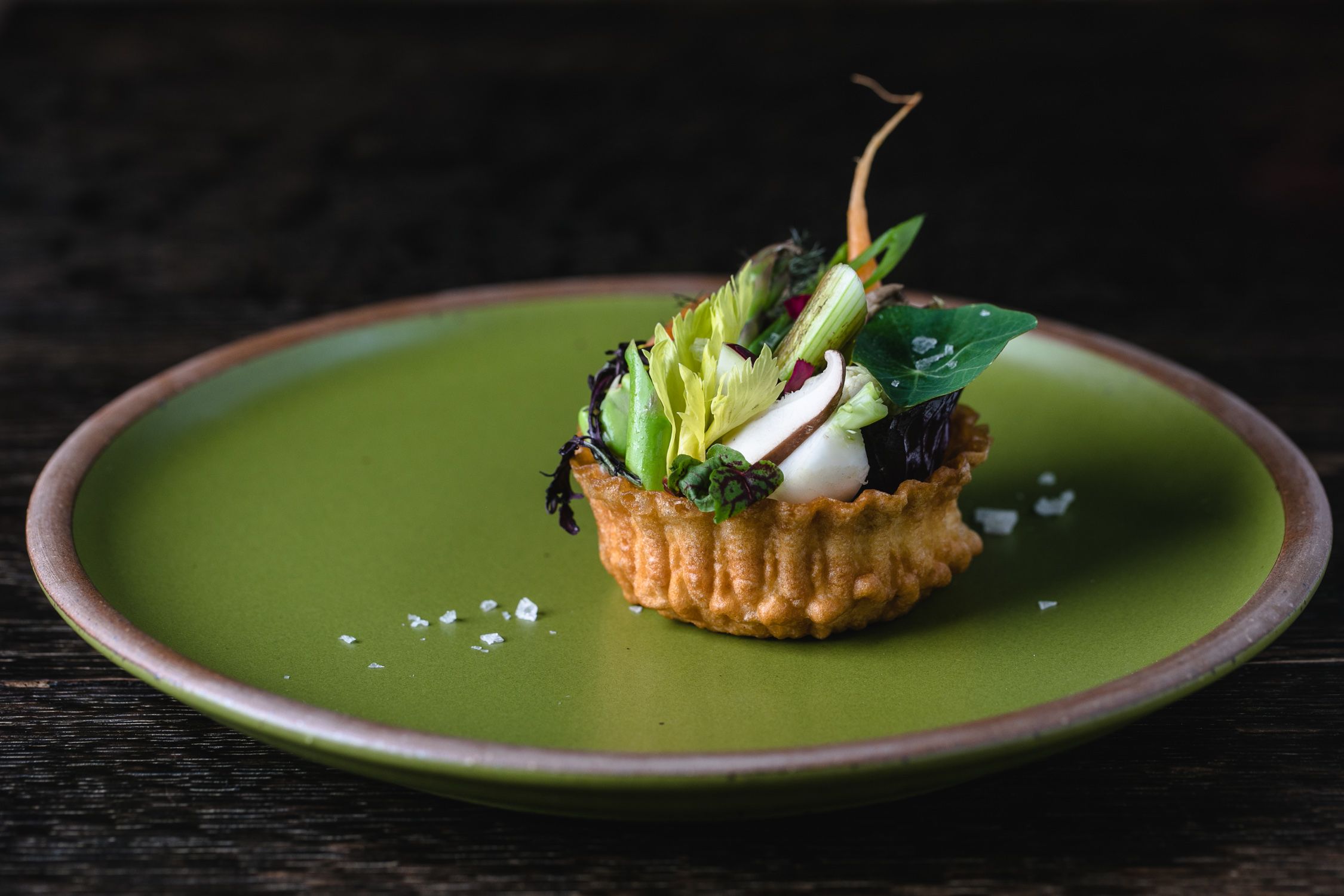
The light coming through the windows is softened by the green trees and afternoon shadows. Annie and I hold our EF Mugs, sipping tea (Annie) and coffee (me) as we continue to talk. We have a lot to catch up on since the pandemic, which has affected everyone in the industry, including her.
Bacchanalia moved into its current building on Ellsworth Industrial Boulevard in 2017, and had two solid years of success “until everything fell apart in 2020,” Annie says. “But we were only down for eight weeks. That was it. And we did stuff to keep busy. It was around Easter so we would come in and make Easter baskets, and my sister and I delivered them.”
With a grant, Annie worked with Georgia Organics to create boxes of produce and proteins and bread for their staff every week. It kept everyone engaged and in touch with each other during that time, Annie explains, because “half of them know how to cook, and the other half are getting produce that they don't know what to do with. So there was this text chain between every restaurant where the staff could say, How do you cook beets? Or What should I do with Swiss chard?”
After eight weeks, their restaurants slowly reopened, trying to balance to-go offerings and sit-down dining. Bacchanalia and Star Provisions bounced back almost immediately, while Fish Camp (and Ponce City Market in general) lagged behind. “I just think people weren't willing to go into that large environment,” she says. Now their business is thriving there. Their fourth concept, Floataway, has been last to rebound because they’re heavily dependent on a specific customer base: Emory staff and students, and the CDC, two groups whose in-person schedules have changed dramatically during the pandemic.
“COVID also rubbed against what we have fought for all these years: sustainability,” Annie says. “All of a sudden there's nothing sustainable.” People wearing disposable masks, gloves, food packaging, and more. “Everything is going into the landfill.” I can tell it pains her.
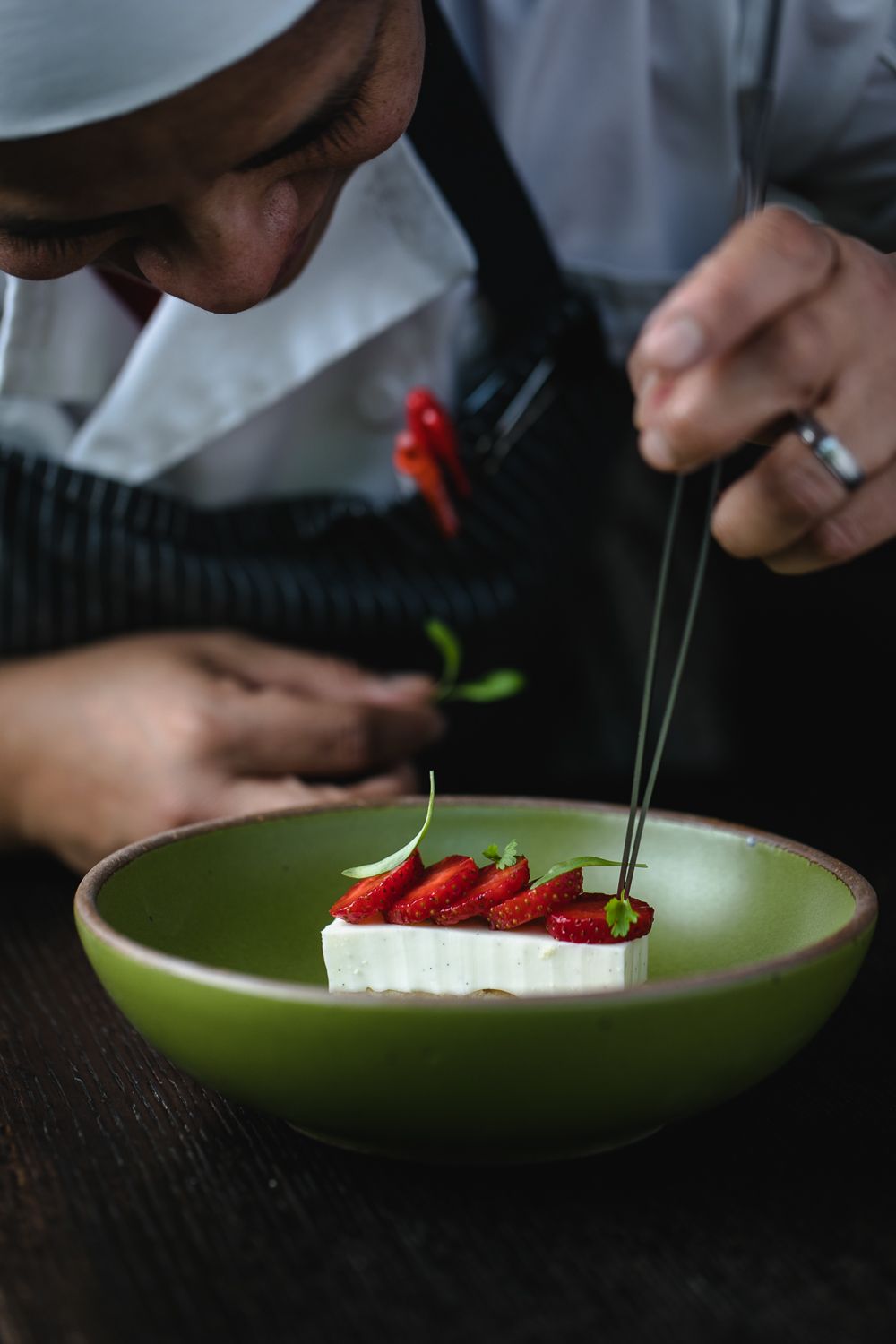
Carla, Bacchanalia’s pastry chef of 18 years, brings out the first of three desserts: fresh and dried strawberries on sweet ricotta surrounded by a granola and garnished with a small nasturtium leaf. “Carla is the person I trust the most in the whole world,” Annie says, smiling.
“I sometimes say I can't throw a stone in this town and not hit somebody that worked for us at some point,” she continues. “All our wine people. All the cooks in the restaurants. It’s crazy. But not a bad thing.”
“Did you experience turnover in the pandemic?” I ask.
“Not with a lot of our core people,” Annie says. “And the kitchen staff here remained. We brought people in, but the salaried people stayed the same. The store staff stayed the same.”
This brings us to reminisce about Annie’s past restaurants, such as Abattoir, which they closed in 2015. So many things factor into knowing when to close a restaurant, so I ask her, How do you know when it’s time to pull the plug?
She thinks on it for a minute. “I don’t know,” she finally says. “I'm not very realistic. I get very attached to things and I don't really know. When we open a place, it's mostly because we have an emotional attachment. I recall the first time I saw the Floataway space, I had an emotional attachment to it. It's down this industrial road, it's an industrial building, but it has a big, huge green space behind it. I was like, ‘I love this. I love the dichotomy of this.’ Which is what we get here,” she says, gesturing around Bacchanalia’s dining room.
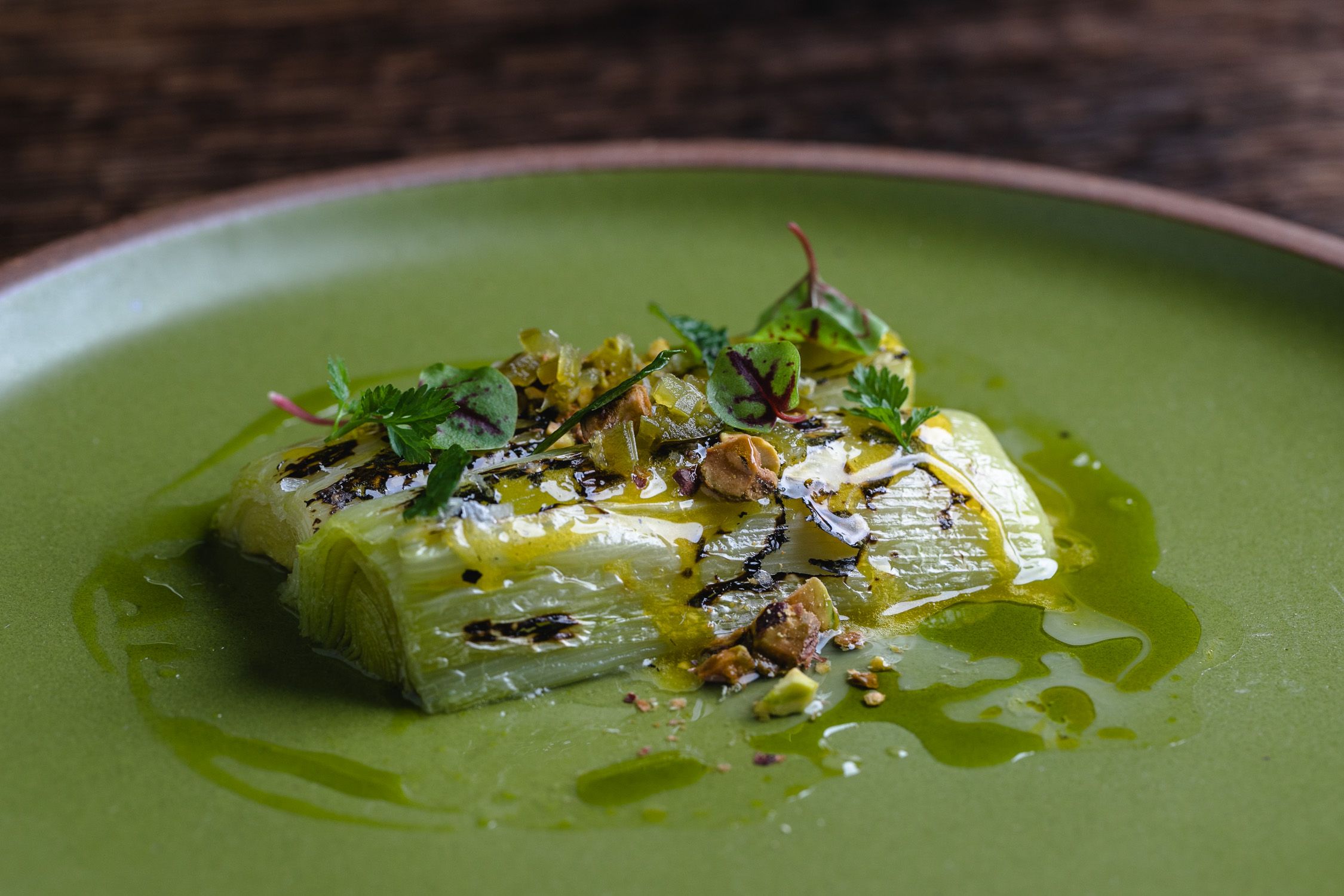
It’s all coming together, and for a while I sit back and watch Annie work with the team as they go through their menu. She has to answer some texts and calls. I stand up and move around. I love being back among F&B people who clearly love their work, the bustle and focus and payoff of it all. Eventually, she and I sit together again on the long bench against the dining room wall.
“I just had my first knee replaced,” Annie says.
“Oh, congrats.”
“Eight weeks ago. And now I'm doing this one in May.” She points to her other knee. “So I'll have bionic knees. The knees go, man. You stand for that many hours for 42 years, it's tough on them. But it's okay. This one went okay. It was shocking. I went [to the specialist] at seven in the morning and I was home at two in the afternoon. Fifty stitches. I was just like, what? As soon as you wake up, they make you walk. It hurt, sure. But…” Annie trails off, studying the beef tartare that James is plating. She instructs him thoughtfully: “Let’s keep it simple, just a little bit of powder on the top. Both powders. And chips after.”
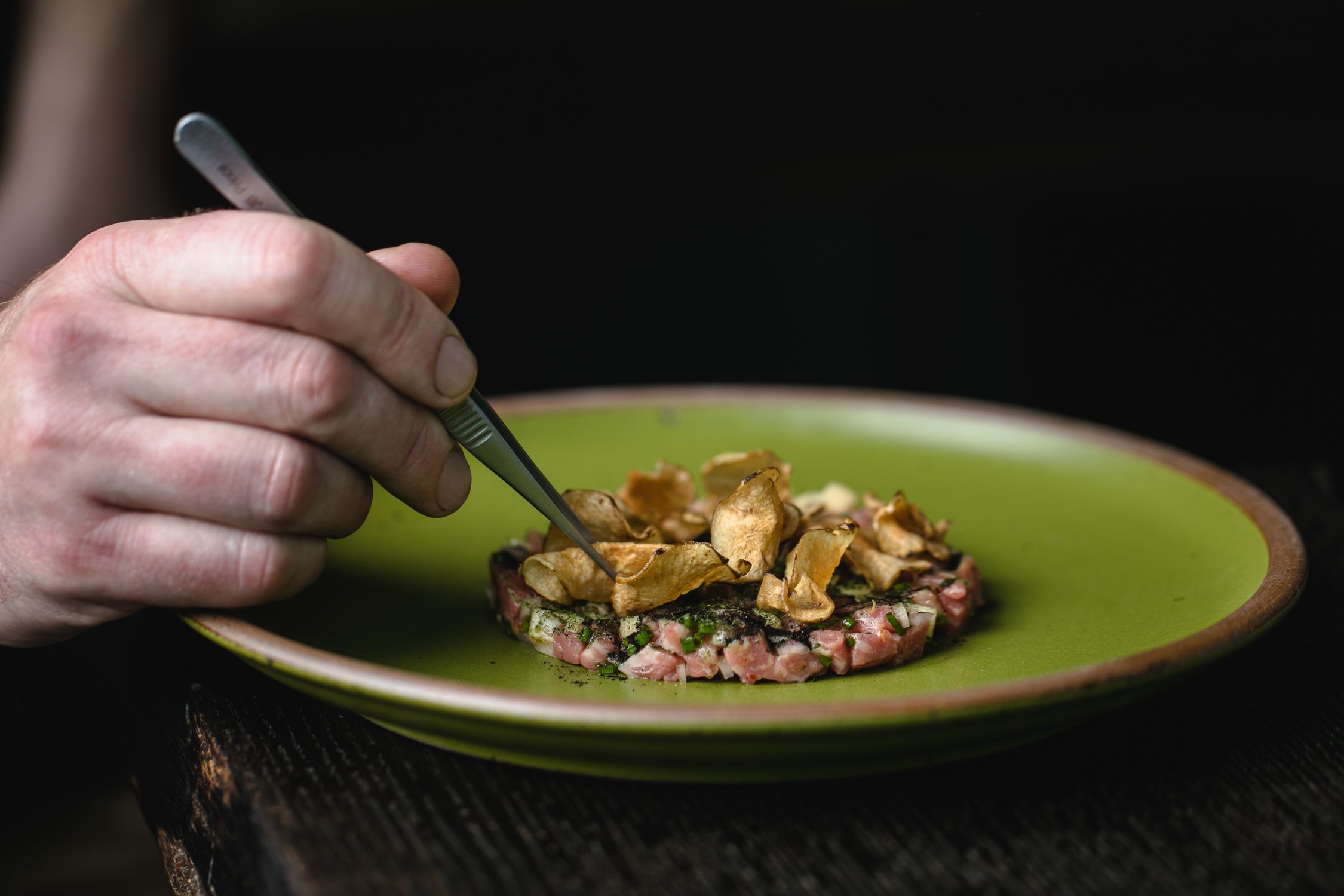
So what’s next for Anne Quatrano?
She says she doesn’t go by rules. It’s more of a gut feeling.
“I don't really talk about this much, but I'm pretty sure we're going to open a place up in Cartersville,” she says. “We’re thinking directly across from our farm, almost like a food stand meets Star Provisions. I think it's time to do something out there.”
We both agree that some of the best restaurants feel like destinations, not distractions. She says it’s probably stupid to open a restaurant on a rural road but she loves the idea. “I think people would want to come out here and be across the street from our farm. I don't think I'll open another restaurant except for what we were talking about up there.”
We fall quiet as she studies James adding a single dot of green herb oil to a pristine oyster.
“Are you ever going to retire?” I ask.
“No,” she says.
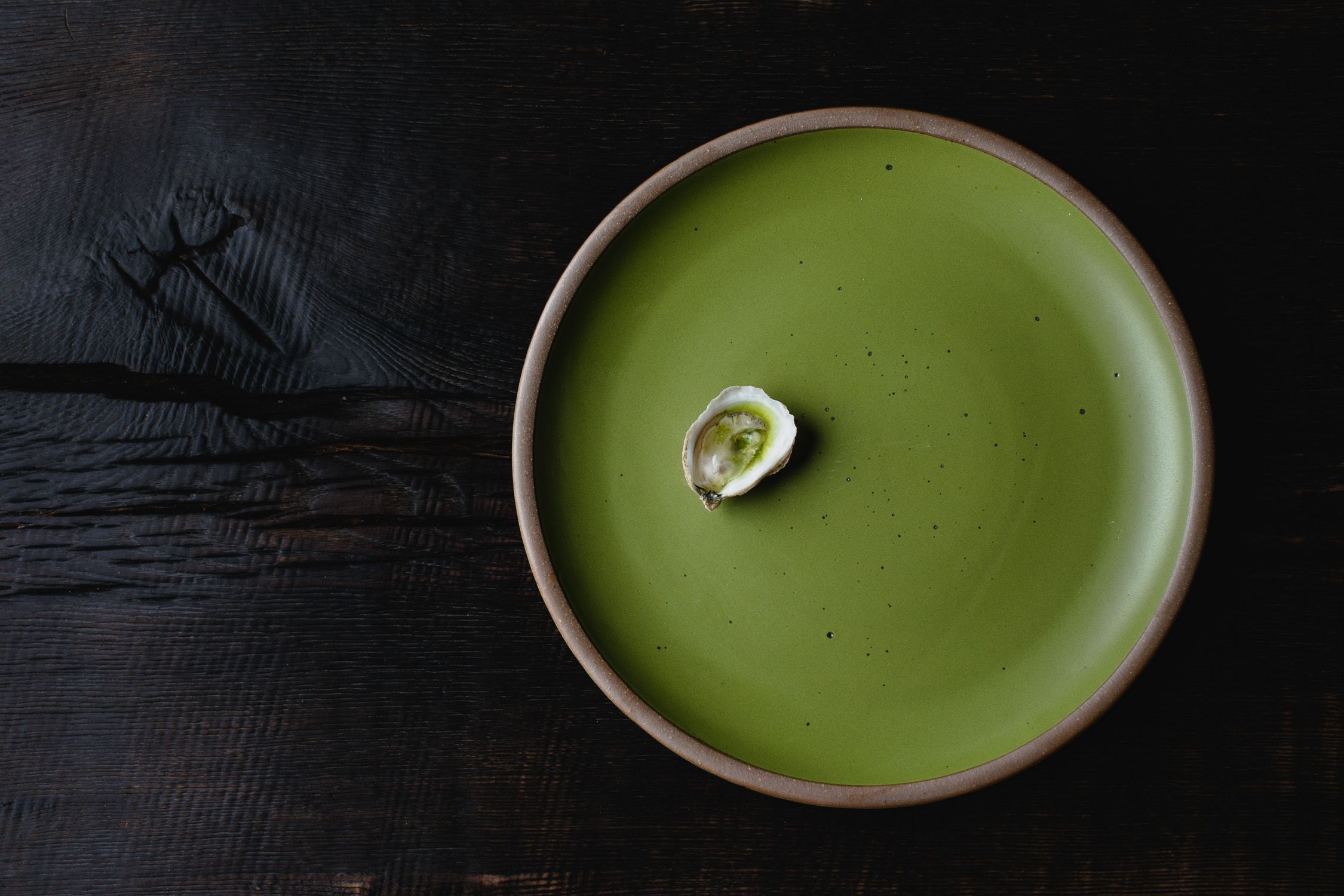
She takes some time with the team to play with dishes and food, and a Fiddlehead-inspired menu is soon arranged on the table. A feast for the eyes and palate: beef tartare, oyster, vegetable tart, perfectly sauteed leeks, strawberry and ricotta, turbot and spring peas, coffee with caneles. She nods in approval. “I always tell the staff here, open and work in as many restaurants as you can, before you do your own. So you make mistakes with other people's money.”
Annie believes in mentorship and creating the space for staff to grow. “You have to foster good staff. You have to let them have some creative freedom. That's why we do this,” she says. “Cooking's an art, gardening's an art, farming's an art. And if you're just doing what somebody else says all the time. I feel like it's easy to lose your soul.”
Carla brings out a soufflé, with a gentle egg white whip. I gasp at how beautiful it is.
“I’m glad she has two,” Annie says. “So we can eat one.”
“I always have two,” Carla smiles. Annie grabs one of the spoons on our table and hands it to me. “This is my favorite. And it tastes even better than it looks.”
She gestures for me to dig in.
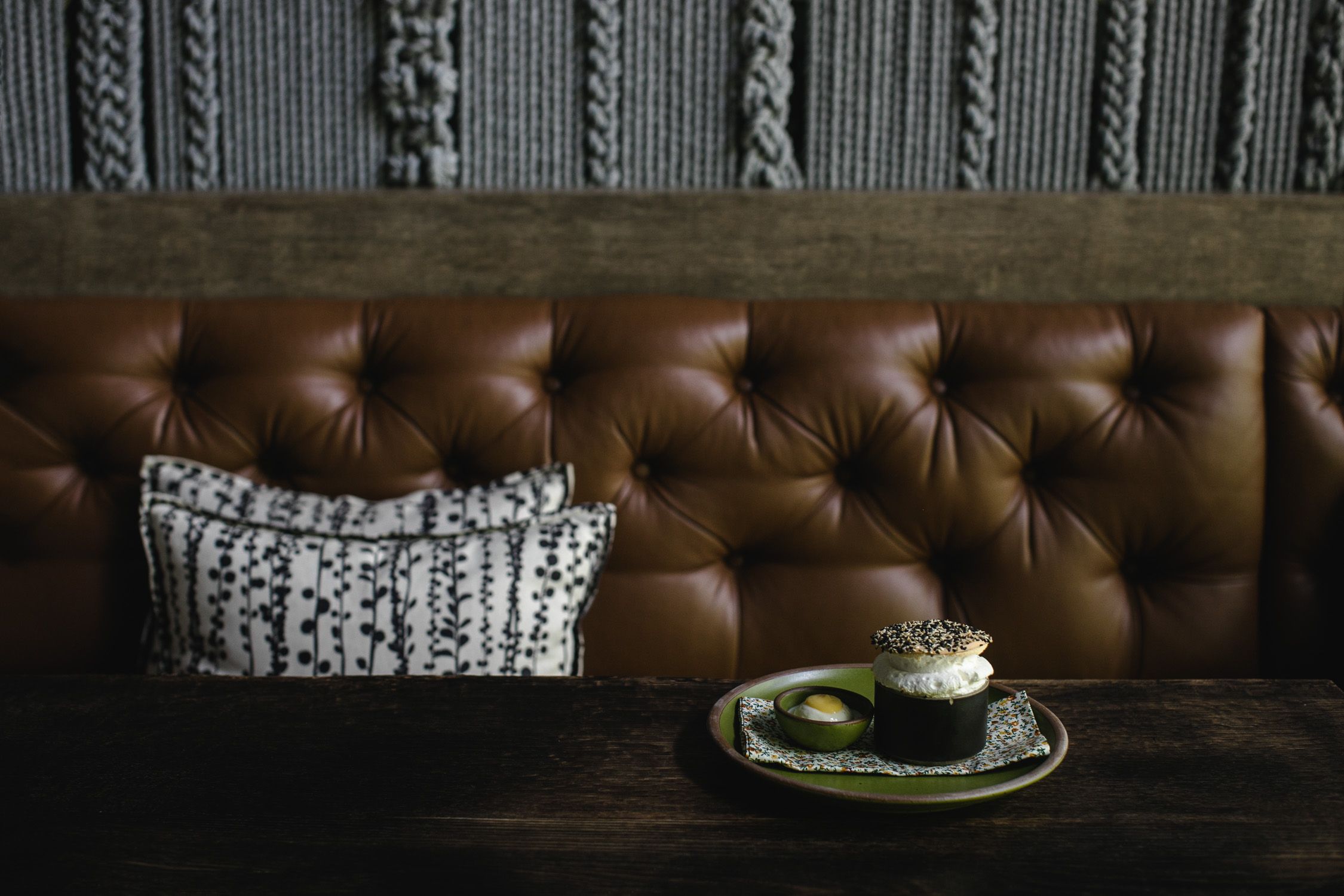
More with Anne…
ON SUMMERLAND FARM:
Right now we have this great farmer, Hugo, who's super prolific. Farmers come and go, of course. It's a really hard job, harder than [owning a restaurant]. Backbreaking. Our current farmer hardly uses the tractors or the implements. He's got so much that he's harvesting now. 40 pounds of collard greens, 30 pounds of arugula. We were like, "Wow, what do we do with all that?" Twice I've left bags of arugula or mustard mix on Steven Satterfield's door at Miller Union, because I just want it to be utilized. The farm is interesting and difficult, and most of the farmers who come are learning. They're learning how to do it on their own. They transition because they're moving on to get their own farm going. And that’s great.
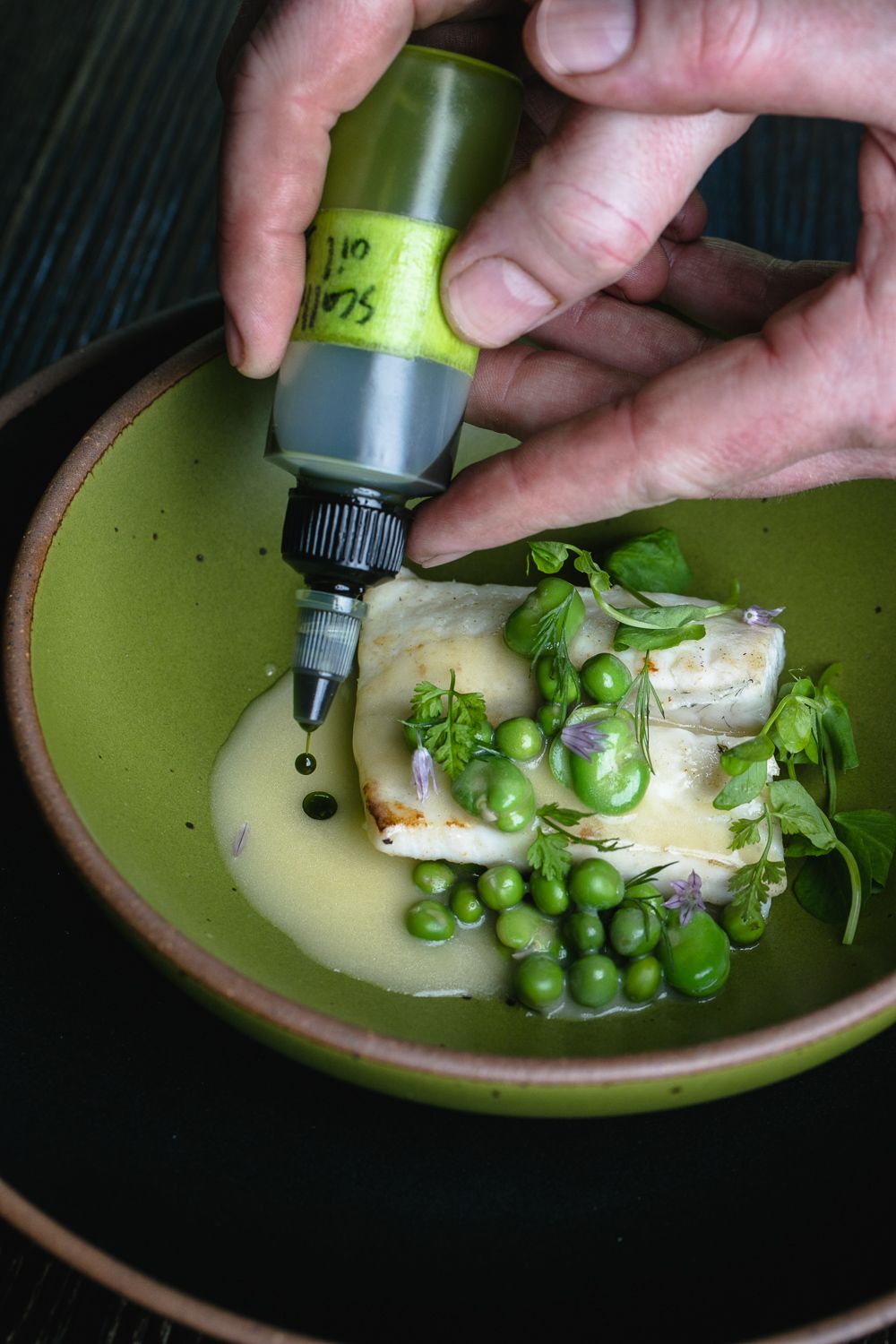
ON PLATING & AESTHETICS:
You've seen some of those pastry chefs and pastry feeds where they do so many different weird things, where they do a ball of this and then this, and then it's covered with this. I'm just like, "What?" Wouldn't it just be as good with a piece of chocolate with some caramel? Come on!
That's what I love about Carla. She makes these desserts and they taste good and they look good, but they also still look natural. Simple and special.
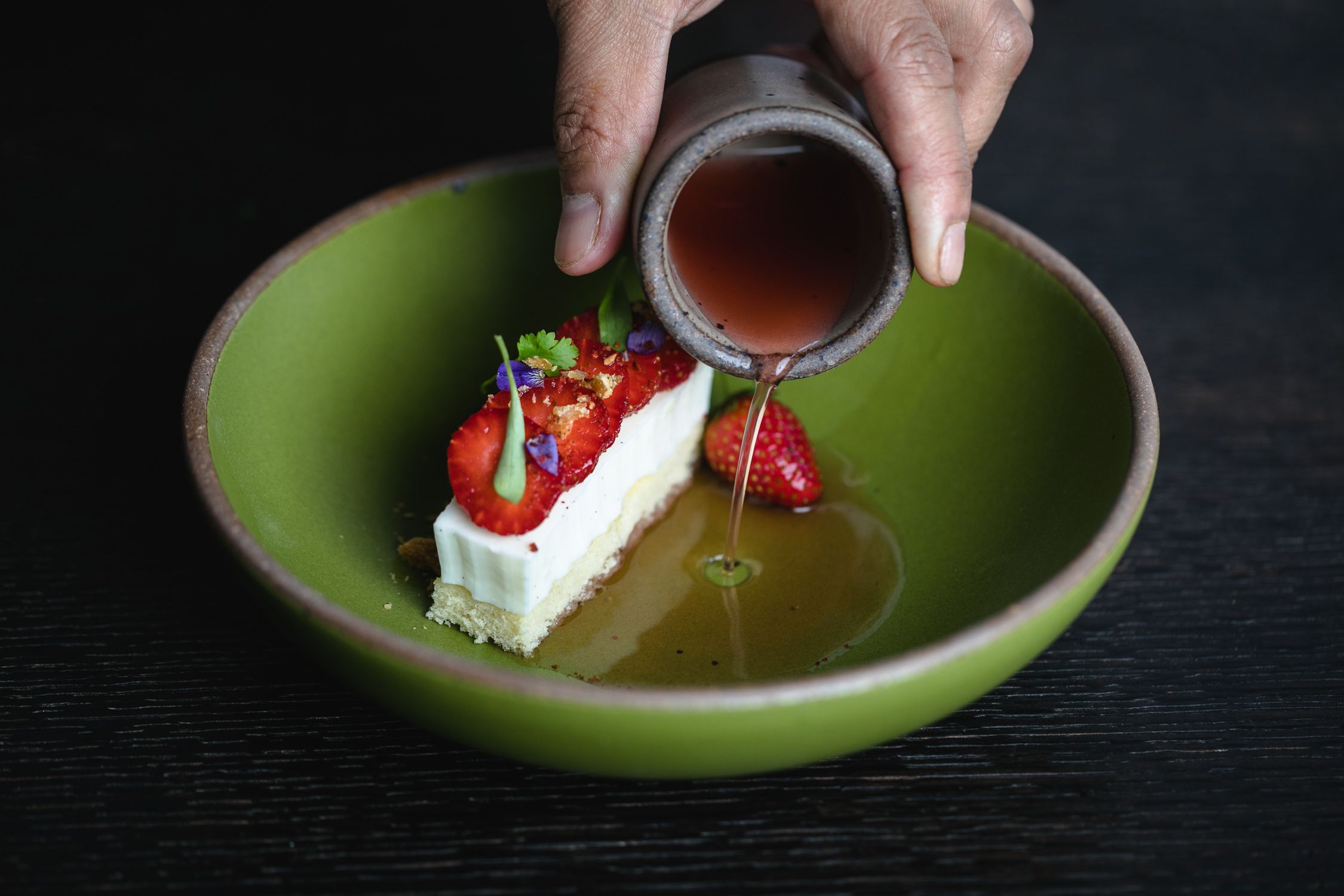
ON FLAVOR:
I always say more acid. I usually like more salt. And then I also feel like I want texture. I like things that have a little bit of fermentation. Sometimes you can get that nice acidity and brightness from the ingredient itself or sometimes you have to add it. We don't have much citrus here, but Florida citrus is always available.
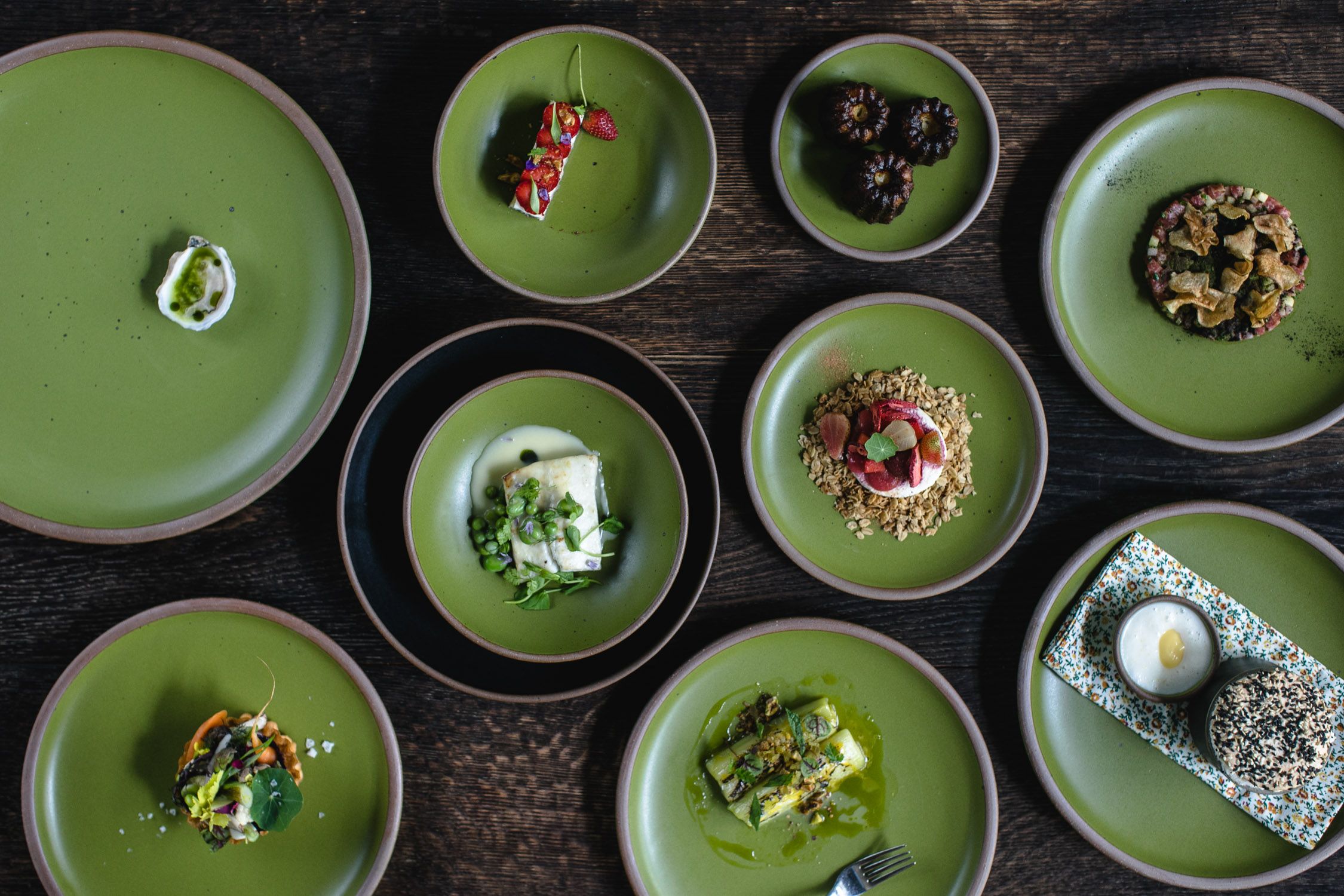
ON PEOPLE:
I personally would not want to work in a kitchen by myself or with a couple other people and never be actually plating food or presenting it to guests. I think for me, that's really what it's all about. It's that interaction with the guests and making them happy.
